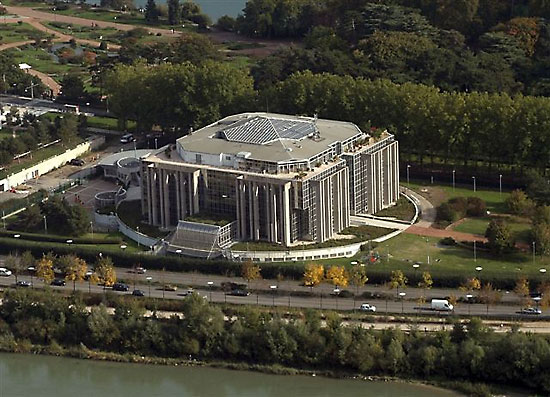Who has a legal right to spy on people except governments’ intelligence agencies get away with trespassing people’s privacy and not get blamed for it as they do it for the common good of a community? But when the same tool is used by the government against an individual, it becomes one man versus the whole state. Something of the same happened to the 23-year-old Saudi journalist, named Hamza Kashgari, who was arrested in Kuala Lumpur with the help of Interpol’s red notice system by the Saudi Arabian government.
His crime was insulting Prophet Muhammad. He was arrested in Kuala Lumpur by the local authorities on behalf of the Interpol who intervened on behalf of Saudi authorities. But this involvement was later denied by the Interpol. They issued a statement saying:
“The assertion that Saudi Arabia used Interpol’s system in this case is wholly misleading and erroneous.”
The Saudi journalist, who was born a Sunni-Muslim and was raised as a Salafi, had to flee from his birth country to Malaysia when he made three tweets against Prophet Muhammad. He received around 30,000 responses and most of these were death threats. Being also a poet, he imagined up a meeting with the Prophet saying these things that you can read by clicking here.
Hamza Kashgari thinks of himself as a human rights activist and said his intention was:
“I view my actions as part of a process toward freedom. I was demanding my right to practice the most basic human rights—freedom of expression and thought—so nothing was done in vain. I believe I’m [sic] just a scapegoat for a larger conflict. There are a lot of people like me in Saudi Arabia who are fighting for their rights.”
The media has been quick to catch up on this case, and the social media is already buzzing about it with an international response that in general says save him from being given capital punishment under the Saudi law. There has been a Facebook page supporting this cause. With such cases as this recent one, the international community gets another chance at solidifying there stand of showing how narrow-minded the Muslim community is that does not allow free thinking.
But this point of theirs is immensely generalized, because Islam teaches the promotion of free thinking and allows expression of beliefs, which is why it is essentially a tolerant religion. But what is unacceptable is to go on ranting about the most respected spiritual leader of the Muslims and the Prophet of God, who is the Seal of the Prophets, which means he is a Prophet of all people and for all times, the entire humanity for eternity. Even just thinking it in terms of a strong belief, it is foolish on part of a person to question someone with such a high status and repute that God Himself has bestowed.
Since Hamza Kashgari tweeted not understanding him was not the problem, but when he said he “hates things about [him] and… will not pray for[ him]”, is when he crossed his limits. Because for Muslims it is considered a religious duty to pray and bless the Last Prophet of mankind, Muhammad. There have been many incidences at the time of Prophet Muhammad when a lot of people insulted him, but he being the man of peace never gave any negative response to those who gave him pain, instead always prayed for their guidance as was befitting to his status of God’s Messenger. But for the Muslim community, it has always been the case of heavy-hearted and quick-angered reaction that puts them in clash with those who like to openly offend them and Islam’s Last Prophet in the name of free thinking.
The Malaysian authorities have no option but to return Hamza Kashgari to his native country to be charged with the crime of insulting and offending Muslims and the religion he was born into. His charge is of apostasy, which is a religious offense punishable by death. Many human rights groups in Malaysia though are against his arrest and have criticized Interpol’s cooperation to put him behind bars. The Interpol on the other hand wants to remain clean of this image, and hence have denied taking part. Interpol is supposed to safeguard people’s right of expression and other freedoms and not get involved in such matters. As has been said by the British charity, Fair Trials International’s chief executive:
“Interpol should be playing no part in Saudi Arabia’s pursuit of Hamza Kashgari, however unwise his comments on Twitter.”
Further saying:
“If an Interpol red notice is the reason for his arrest and detention it would be a serious abuse of this powerful international body that is supposed to respect basic human rights (including to peaceful free speech) and to be barred from any involvement in religious or political cases.”
The Interpol has only replied this:
“There are safeguards in place. The subject of a red notice can challenge it through an independent body, the commission for the control of Interpol’s files (CCF).”
With such cases as that of Hamza Kashgari many sphere of life are molded into one, with the religious and political beliefs taking the upper hand. What is imperative to be understood in order to approach such matters rightly is the basic human value of giving respect in order to be respected. If Hamza Kashgari cannot respect the feelings and beliefs of a billion Muslim, and more than a billion people who are non-Muslims and follow the right of the Last Prophet to be respected and are also offended that such a transgression was committed, then can he find it justifiable in his logic for him to be respected and his rights to be protected?
[ttjad]



